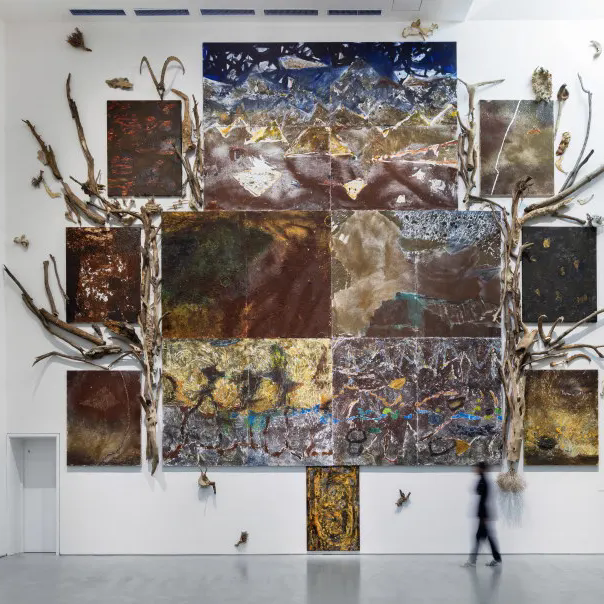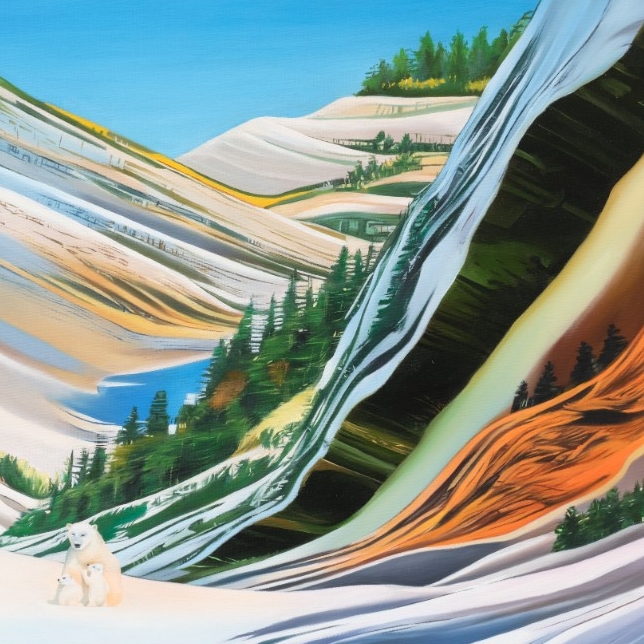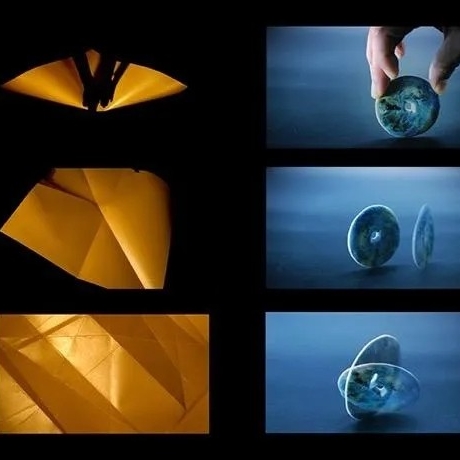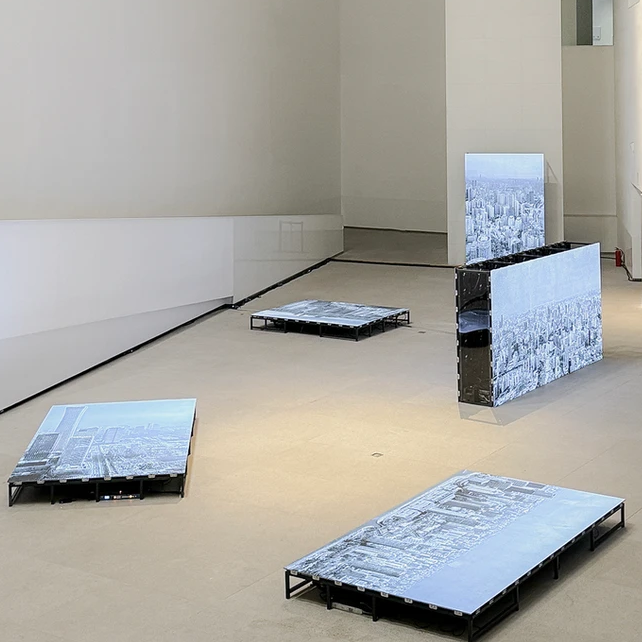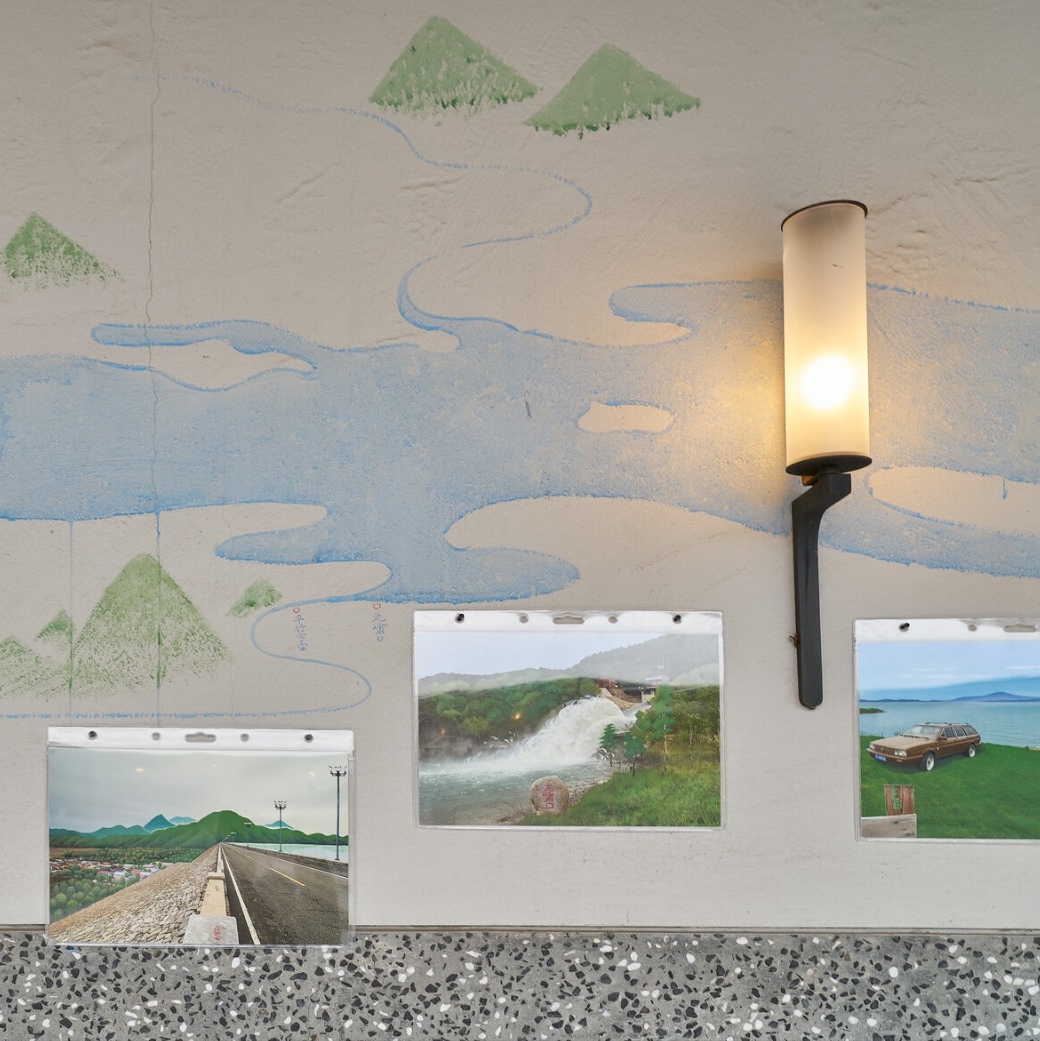 Hyundai Motorstudio Beijing announces “Balcony of the Brave—Nutrition, Materials, and Future Ecology”, the first award-winning exhibition of Hyundai Blue Prize Art+Tech, opening on April 27, 2022. Revolving around balcony—the extension of the interior space, the exhibition takes the imaginary “future balcony” as the blueprint, to conceive the “balcony landscape” can be independently forged by future technology.
Hyundai Motorstudio Beijing announces “Balcony of the Brave—Nutrition, Materials, and Future Ecology”, the first award-winning exhibition of Hyundai Blue Prize Art+Tech, opening on April 27, 2022. Revolving around balcony—the extension of the interior space, the exhibition takes the imaginary “future balcony” as the blueprint, to conceive the “balcony landscape” can be independently forged by future technology.
Balcony of the Brave — Nutrition, Materials, and Future Ecology
Something that has always been vivid in my memory is the balcony of my grandma's house. It was stacked like a treasure chest with all kinds of things, abundant yet orderly: food, materials, tools, and green plants, were all there, and it was also the space where my family and I could easily observe the sky. The balcony is a living space that we are most familiar with in our daily life, a place for residents to breathe fresh air, dry clothes, and place potted plants; it is bonded to both life and nature, an individual space accompanied by social activity.
This exhibition takes an imaginary "future balcony" as a blueprint, conceiving a "balcony landscape" — a post-human living landscape, where people create independently through future technology. It is like a research laboratory for people: they convert nutrition, create living materials and build "ecology" here. A balcony is a place where technology and nature unite to create, also a future life scenario constructed with local technology.
Confronting a geological epoch in which a new intelligence and ecology evolve together, James Lovelock, who proposed the Gaia Hypothesis, envisions that Cyborg and Gaia will jointly govern the earth for the first time. The "balcony" as a metaphor, symbolizes the ecology created by technology and nature, life and non-life, reflecting an epitome of human life in the future, which will be a huge system of nature and machine hybridization. Nowadays, we need to rethink the relationship between technology and ecology. The synthesis of technology and environment constitutes its own beginning and the corresponding autonomy; we could reconsider this beginning, or place it in a suitable cosmic reality. Donna J. Haraway proposed the notion of “Staying with the Trouble”. And with “Chthulucene”, the other concept, Haraway hopes to help us with is “learning to stay with the trouble of living and dying in response-ability on a damaged earth”; to inspire us to abandon arrogance and passivity, to have a discussion rooted in reality, to explore a non-typical scenario, unlike the past, top-down authoritative narrative. She expects the exploration could bring us the possibility of human transboundary survival and symbiotic harmony of all things. This requires today’s artists and designers to be like "the brave ones" who are not afraid of difficulties and troubles, who rely on personal research and action to foresee the future crisis and challenges of human survival, to think about the possibility of technologies in a holistic and locally applicable way. They would also need to change their inherent ways of thinking and strive to find possible solutions so as to provide new frameworks for the symbiotic development of technology and ecology. Only through these new frameworks can we imagine the harmonious coexistence of “Cyborg and Gaia”.
Facing such a chaotic present and an uncertain future, we need a technology rooted in life and an experimental field to unite all forces, and to reconsider the present correlation between people and everything in this pragmatic action. Maybe the future ecology is not in the distant future, but at everyone’s feet.
This exhibition presents a slice of life of “the brave" when facing "trouble": the balcony. The exhibition is divided into four sections: Nutrient Converters, Material Makers, Garden Planters, and Stargazers, exploring the relationship between technology and ecology from four perspectives respectively.
Nutrition Converters
Nutrition is necessary for surviving. Through photosynthesis, organisms convert conditions from surrounding space into nutrients needed for their survival. Modern molecular biology has given "the brave ones" new capabilities: They can create new ways of nutrition intake and new forms of food production for people through fusion and conversion. Ultimately, human beings and other living beings on earth share energy from the sun and other energy necessary for living.
Material Makers
Technology development has provided people with the possibility of new technology and material integration. If people once relied on nature to meet their own needs for survival and development, now “the brave ones" have used their foresight to synthesize new materials by using molecular chemistry, bacterial culture, and other artificial interventions to "collaborate" with nature, which also offers a new material profile for the future of human life.
Garden Planters
A garden is not only a place where plants grow, but also an ecosystem of technology, life, and intelligence in a hybrid state. New species and new forms of life are constantly arising from the combination of technology and life. The sutured technological intervention and the application of laws of life could complete the transboundary coexistence and co-prosperity.
Stargazers
Casting our eyes to the sky, space is the place where we can unfold our infinite imagination. With the continuous deterioration of the earth's environment, how will we survive in the vast universe? How will we live in the future world? These "future proposals" are full of the artists' limitless creativity, and more importantly, while “stargazing”, we can reflect on the current environment through a new perspective of life and ecology.
Text by Diane Xing
Exhibition View


Community Co-Creation Project, 2022
Project Initiator: Diane Xing
Installation Designer: SHA Jinghai
Photographer: CHEN Rui
Project Coordinator: YAN Jianyun
Community Co-creator: Community members from Nanhuqu and Houshayu, online content creators
Ornamental grass support: Institute of Grassland, Flowers and Ecology, Beijing Academy of Agriculture and Forestry Sciences


LIANG Wenhua
DNA Soup, 2018
Installation

LIVIN Farms
The Hive Explorer, 2018
Insect Farming Kit


The Center for Genomic Gastronomy
De-Extinction Dinner, 2018 (ongoing)
Mixed media



GONG Yining, SUN Aijia
Melting Myth, 2022
Installation, digital image
1'30''


CHEN Pengpeng, LIU Xing, LIANG Yuhong,
XU Haomin, ZHAO Hua
Miasma of the Rocks II, 2022
Mixed media installation


XU Chaofan
Urban Mini Farm, 2021
Installation


QIU Yu
Where to Go, 2022
Real-time video, installation

LIU Xin
Ground Station, 2020-2021
Video installation
Loop

Alexandra Daisy Ginsberg
The Wilding of Mars, 2019
Video
60'00
© Alexandra Daisy Ginsberg
Courtesy to the artist
Commissioned by the Vitra Design Museum and the Design Museum
With support from Cité du Design, Saint-Étienne

Whatever
ALMA Music Box: Melody of a Dying Star, 2014
Installation
Credit: Whatever + BASSDRUM + Qosmo + Epiphany Works + NOAJ


LIANG Shaoji
Get Square into a Circle, Get Circle into a Square, 2015-2021
Installation, video (2001-2003, 4'00)


Dasha Tsapenko
Fur_tilize, 2020
Installation
In collabration with Han Wösten
Photo credits: Hanneke Wetzer, Romy Finke


Julia Watson
Lo-TEK: Design by Radical Indigenism, 2019
Documentation

QIU Yu
The Merging Place, 2022
Video, multi-channel audio
About the exhibition
 Exhibition Time: Apr 27th, 2022 to Aug 28th, 2022
Exhibition Time: Apr 27th, 2022 to Aug 28th, 2022
Exhibition Opening: Apr 27th, 2022, 2PM
Curator: Diane Xing
Organizer: Hyundai Motorstudio Beijing
Participating Artists:
Alexandra Daisy Ginsberg
CHEN Pengpeng, LIU Xing, LIANG Yuhong, XU Haomin, ZHAO Hua (Group)
Dasha Tsapenko
The Center for Genomic Gastronomy
GONG Yining, SUN Aijia (Group)
Julia Watson
LIANG Shaoji
LIANG Wenhua
LIU Xin
LIVIN Farms
QIU Yu
Whatever
XU Chaofan
Exhibition Venue: Hyundai Motorstudio Beijing (E-1, 798 Road, 798 Art Zone, Jiuxianqiao Road, Chaoyang District, Beijing, P.R. China
Courtesy of Hyundai Motorstudio Beijing.


